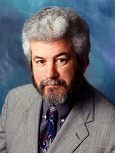 It may not be of much concern for you now - preventing cancer that is.
It may not be of much concern for you now - preventing cancer that is.
You're probably thinking there are more important issues at hand.
After all, if you're healthy, why spend your time worrying about what
might never occur?
If you're convinced there's nothing you can do to prevent cancer,
what I'm about to discuss just might change your mind. It can also
potentially save your life or that of a loved-one.
Actually I feel rather compelled to share some important insights that
surfaced in a recent NPR interview I conducted with John Potter, MBBS,
PhD of the world-renowned Fred Hutchinson Cancer Center in Seattle.
Dr. Potter chaired an esteemed team of experts who set forth to
scientifically explore the relationships between diet, tobacco,
alcohol consumption and cancer. One hundred twenty contributors from
the World Health Organization, the Food and Agricultural Organization
of the United Nations, the International Agency on Research in Cancer,
the U.S. National Cancer Institute and the American Institute for
Cancer Research in Washington, DC systematically reviewed 4,500
research studies. Their findings, published in 1997, generated a
number of fascinating conclusions that include:
- Eating right, plus staying physically active and maintaining a
healthy weight can diminish one's cancer risk by 30% to 40%
- A simple change, such as eating the recommended five servings of
fruits and vegetables each day, could by itself reduce cancer rates
more than 20%
- Alcohol consumption is a definitive risk factor for several types
of cancer; it should be limited to two drinks/day for a man and 1
drink/day for a woman
- As many as 375,000 cases of cancer, at current cancer rates,
could be prevented each year in this nation through healthy dietary
choices
- Recommended dietary choices coupled with not smoking have the
potential to reduce cancer risk by 60% to 70%
You might be wondering what the scientist behind this data actually
eats. During the interview, I asked him just that. It wasn't
surprising to learn that he is a vegetarian who consumes a great
variety of vegetable products without any supplements or vitamins.
I personally found his response fascinating in view of two key
findings that surfaced recently in the medical literature. The first
focused on the widely-used supplement, beta-carotene and was published
in the December 1999 issue of the Journal of the National Cancer
Institute. An investigation that included almost 40,000 people over 4
years, showed no statistically significant reduction in cancer or
heart disease for half of the group which actually received beta
carotene compared to a matched placebo group. This finding is
supported by a 12 year study of 22,000 physicians that demonstrated no
significant benefit after 12 years. Other US and Finnish studies
actually showed a 28% and 18% respective increase in lung cancer among
smokers taking the supplement.
The second key finding presented at the American Society for Cell
Biology's 1999 annual meeting in Washington, DC revealed that Vitamins
E and C, (both free radical scavengers) may ensure additional
protection for cancer cells as well as normal cells. These substances
actually rendered cancer cells less susceptible to therapeutic
strategies, thereby enabling them to grow and spread more rapidly.
According to Rudolph Salganik, PhD of the University of North
Carolina, "cancer patients who pop vitamins during chemotherapy and
radiation therapy may unwittingly be sabotaging their own treatment."
While these findings may challenge what some consider common
knowledge, Dr. Potter and his team arrived at similar conclusions 2
years ago in their book, Food, Nutrition and the Prevention of Cancer:
a global perspective. I highly recommend this text which is available
from the American Institute for Cancer Research. Their comprehensive
website, www.aicr.org provides a wealth of facts, figures and
practical insights from a number of credible sources.
On a scientific level it makes a great deal of sense to reconsider
cancer as a potentially preventable disease. There's also no better
time than the present to challenge the myriad of unsubstantiated
claims that promote what I have termed, "supplemental myths for
profit." Why not take this opportunity to rethink your personal
nutrition approach for cancer prevention?
In conclusion, it's no less than shocking to realize that 60-80% of
cancer worldwide can be prevented through a practical nutritional
approach coupled with avoidance of alcohol and tobacco products. A
new drug with such effectiveness would certainly be considered a
miracle - Mind Over Matter!
© 1999 Barry Bittman,
MD all rights reserved
Contact Dr. Bittman